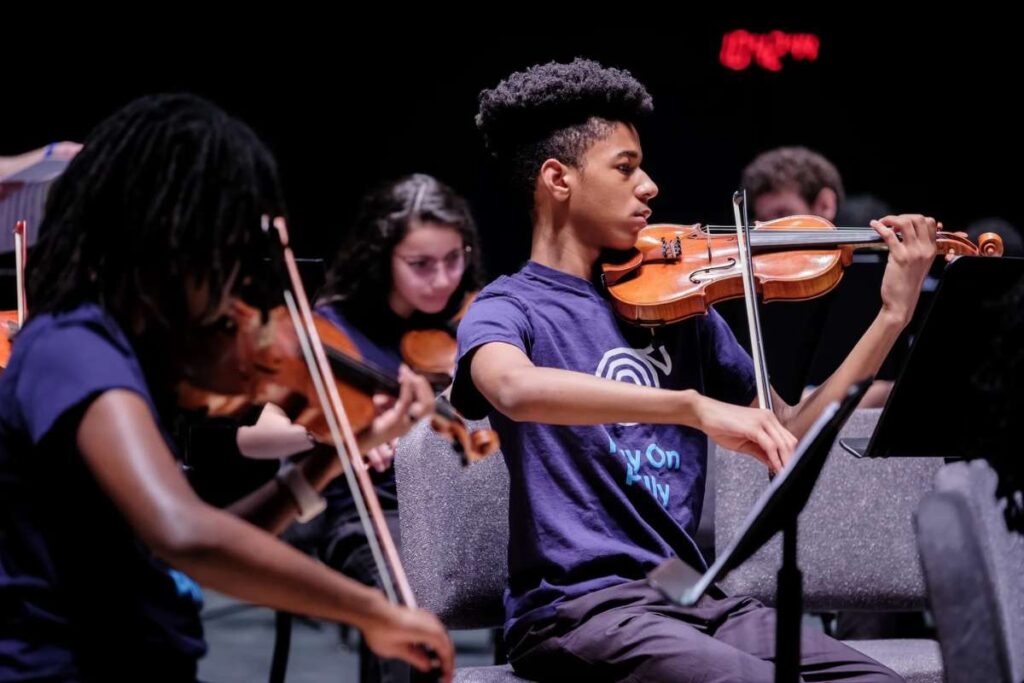On a vibrant May afternoon, the Temple Performing Arts Center echoed with the rich sounds of orchestral music during Play On Philly’s annual POP Jubilee. From preschoolers to high school seniors, students performed in front of a proud audience, showcasing a year’s worth of intensive music education. The nonprofit, established in 2011, offers students from underserved communities eight hours of weekly instruction across five Philadelphia locations. Recently, the program gained recognition from “Abbott Elementary” creator Quinta Brunson, who donated $25,000 in support.
While learning instruments is central to the program, Play On Philly (POP) emphasizes more than musical talent. Executive Director Jessica Zweig noted that POP cultivates executive function, cognitive skills like focus, multitasking, and problem-solving through disciplined practice and teamwork. “We’re not just teaching music,” Zweig said. “We’re teaching kids how to persist through hard things.” For many students, POP becomes a safe, trauma-informed space where they’re encouraged to grow, express themselves, and find community.
Research-Backed Transformation
Research by the REACH Lab at West Chester University confirms that Play On Philly students outperform their peers in both executive function and academic subjects like math and English. Since 2014, Dr. Steven Holochwost, co-director of the REACH Lab, has studied the cognitive impact of music education, particularly among children from underserved backgrounds. He points to the structured nature of POP’s daily music practice as a possible factor behind these results.
Students in the program must navigate complex tasks like synchronizing with conductors, reading music, and coordinating with peers, all actions that strengthen brain functions linked to long-term academic and life success. While the exact mechanics remain under investigation, the benefits are clear: better school performance, stronger emotional regulation, and higher graduation rates. “Every student who has stayed with POP through 12th grade has graduated and gone on to college,” Zweig said, emphasizing the power of continuity and support.
Holochwost added a thoughtful critique of how arts programs are often measured: “We never expect math class to improve oboe skills, yet we judge music programs by how well they improve math. Let’s not forget teaching music is the main mission, and that alone is valuable.”
Shaping Lives, Inspiring Communities
Alumni of the program, like Gabrielle Bioteau and Christina Rooks, are living proof of POP’s enduring impact. Bioteau, now an engineer, credits the program with helping her overcome self-doubt and understand her worth. “Even though I was new, I brought value. That lesson sticks with me today,” she shared. Rooks, now a special education aide, was so inspired by her experience that she pursued a degree in music and now brings that same passion into her classroom.
Looking ahead, POP envisions greater community involvement. Zweig dreams of neighborhoods rallying behind student orchestras the same way they support high school sports teams. “What if everyone in the community came out for a student’s first violin recital the way they do for football games?” she asked. Through creativity, collaboration, and compassion, Play On Philly hopes to inspire not just students but entire communities.
As Zweig concluded, “We live in a complex world. It will take creative, collective thinking to shape a better future, and music is a powerful place to start.”

